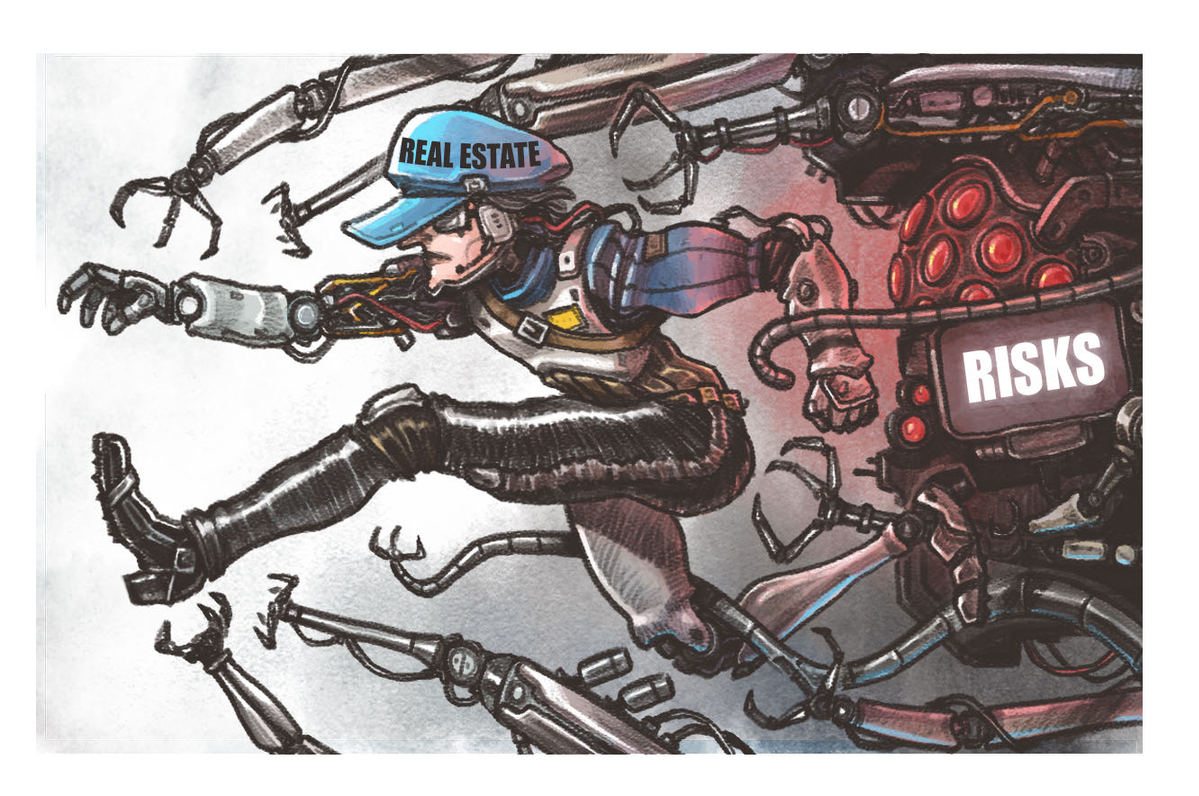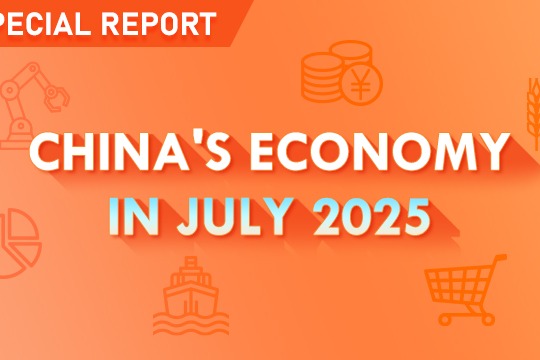Ensuring timely, adequate fund key to realty


While the US Federal Reserve has accelerated its pace of interest rate hikes to curb inflation, Chinese property developers have been hit by rising interest rates just as they plan to extend US dollar-denominated bonds. These developers will face downgrading risks if certain bonds default, which may further evolve into financing turbulence.
Shimao Group, for example, missed interest and principal payments for a $1 billion offshore bond due on July 3.
According to market consultancy DM Research, bonds issued by 123 property developers will soon face maturity.
Up to 58 domestic real estate bonds valued at around 64.9 billion yuan ($9.7 billion) will mature or exercise put options this month. Specifically, China Evergrande, China Resources Land, Gemdale Real Estate, Ronshine Group and Powerlong Group will each have more than two bonds facing redemption by the end of this month.
Another 40 overseas real estate bonds will have to pay coupons this month. Country Garden, for example, will have to do so for six US dollar-denominated bonds; Shimao and Logan will have to do the same for five bonds each, respectively; and Evergrande, Kaisa, Greenland, Sunac, Yuexiu Property, Sino-Ocean Group, Yuzhou Group and Times China each have more than three bonds awaiting interest payments this month.
Though the Greenland Group has completed the 12-month extension of the $500 million senior unsecured notes due on June 25, S&P immediately lowered its credit rating, treating this transaction as a nonperforming debt restructuring, which is equivalent to default. While most bond defaults or extensions used to occur among privately owned property developers, the market has been shocked to discover this time that State-holding property developers are not immune from defaults or extensions now. It can thus be inferred that risks in the real estate sector have not been completely addressed.
The fact is, there is still much restraint concerning property developers' financing, and the case is especially true for privately owned property developers. Only a few companies with better financial indicators have been provided with more credit.
Latest industrial readings show that the Chinese property market will encounter certain risks in the second half.
Land acquisition costs as well as construction and installation costs are two key aspects related to property development assessment. According to Chinese laws and regulations, property developers are allowed to pay all land acquisition fees within one year of obtaining land use rights. Land acquisition costs are largely dependent on land sales.
According to the China Real Estate Index System, given the overall buoyant land market in 2021, land grant income jumped 11.2 percent on a yearly basis during the first two months, resulting in an 11.26 percent rise in land acquisition costs during the same period. Surging land acquisition costs also contributed 67.34 percent of incremental property investment in the January-February period.
Land sales have been sliding in China ever since July last year due to the contraction of the property market. Between June 2021 and May 2022, only 5.3 trillion yuan worth of land transactions were completed, down 32.74 percent year-on-year. In this sense, land acquisition costs will face much more downward pressure in the second half.
It should be noted that land grant income only declined 4.45 percent year-on-year in the first quarter of 2020 at the beginning of the COVID-19 outbreak. But the contraction was as much as 56.37 percent on a yearly basis from March to May of this year, pointing to the fact that the contagion is not the major reason for the downward pressure in China's real estate market.
On top of that, the growth rate of housing construction was in negative territory in May. Due to a plunge in land transactions, construction will also be slashed, resulting in a decline in construction and installation costs. The overall growth rate of property investment will be dragged lower as a result.
The slowdown in property investment will not only jeopardize the development of the real estate industry but also put pressure on economic growth. The problem should be addressed as soon as possible so that the slowdown in property investment will not encumber economic growth in the second half.
Property developers are also facing much pressure in terms of capital flow. Sales and corporate financing are the two major sources of capital flow, which are highly dependent on support from banks.
Ever since financial policies for the real estate industry were marginally relaxed in September last year, the overall domestic loan balance has increased 7.24 percent by May, while the balance of medium- and long-term consumer loans in the residential sector only went up 3.95 percent.
Property sales have gradually grown into a major source of capital for property developers, contributing 55.47 percent in May 2021-a high not seen in recent years. Though the reading was 47.89 percent in May, down from this historic high, sales will continue to assume their current role.
The supervision of commercial housing presale funds should also be optimized.
On the one hand, the rate of frozen capital in presale funds can be moderately lowered on the condition that property developers have reasonable ways of using the funds. Regulators have tightened their grip over presale funds over the past few years due to risks that have emerged in the property market in some parts of the country. But the fact is, the real estate industry is capital-intensive and a relatively free flow of capital is crucial.
On the other hand, policies in certain administrative areas can be relaxed so that property players can be allowed to transfer presale funds across different projects. But there might be difficulties in terms of execution. Local governments may have concerns about property developers using presale funds for other purposes. Buildings may be left unfinished if presale funds cannot be redeemed on time, which are risks local governments would try to avoid.
Therefore, it is safer to use presale funds across different projects at the provincial level. Property developers' capital needs will be addressed to some extent, while risks can be controlled.
The greater acquisition and consolidation of property projects should be supported. Data from the public domain show that nearly 20 percent of real estate projects were jointly developed by different companies. Under such circumstances, if one developer or one project gets entangled in risks, other developers working cooperatively could be easily affected. If quality companies can acquire outright projects or even developers, risks will be controlled and the entire stability of the industry can be secured.
The writer is an adjunct professor of Economics and Finance at China Europe International Business School, and former director of the People's Bank of China statistics and analysis department.
The views don't necessarily reflect those of China Daily.




































